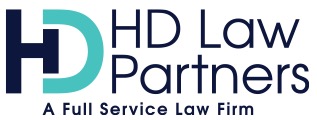When Is An Insurance Company Required To Honor An Assignment Of Benefits?

It is common practice for homeowners to assign their insurance benefits to businesses that perform repair work. But such assignments must strictly comply with the terms of the underlying policy. Insurance companies are under no obligation to pay over benefits to an unauthorized third party.
Appeals Court Grants Insurer’s Request to Reverse Summary Judgment
A recent decision from the Florida Fourth District Court of Appeals provides a useful example. In this case, QBE Specialty Insurance Company v. United Reconstruction Group, Inc., a homeowner sustained water damage to their property. The day the damage was found, the homeowner hired a contractor–the plaintiff in this case–to perform emergency mitigation services.
As a condition of receiving mitigation services, the homeowner and the plaintiff signed a written contract, which purported to include an assignment of the homeowner’s insurance benefits to the plaintiff. Of note, the agreement had spaces for the homeowner to provide his printed name and signature. There was a signature but the printed name space was left blank.
After completing work, the plaintiff sent the homeowner’s insurance company a bill for $10,897.91. The plaintiff and the insurer then negotiated a reduced fee of $8,603.20. But the insurer sent the final payment to the homeowner directly, not the plaintiff.
This prompted the plaintiff to sue, alleging the insurer failed to honor the terms of the assignment and the insurance policy. Specifically, the policy said that the insurer would pay the homeowner “unless some other person … is legally entitled to receive payment.” The plaintiff argued it was such a person.
The insurer’s response was that since the homeowner’s did not provide a complete signature on the contract with the plaintiff, there was no valid assignment. Indeed, the insurer presented evidence from a forensic document examiner, who testified the signature on the purported assignment appeared to be different than the homeowner’s known signature.
Despite this evidence, a trial court granted summary judgment to the plaintiff, finding there was a “valid assignment” and thus the insurer should have paid the plaintiff directly for its services. The insurer appealed. The Fourth District agreed with the insurer that summary judgment was inappropriate, reversed the lower court’s order, and returned the case for trial.
The Fourth District explained the burden was on the plaintiff to prove there was a valid assignment. The insurer had already presented evidence demonstrating the opposite. Since the plaintiff had yet to present its own evidence rebutting the forensic examiner’s testimony, there was a material “issue of fact,” which as a matter of law cannot be resolved at the summary judgment stage.
Speak with a Tampa Mold & Water Damage Lawyer Today
Insurance companies have every right to insist policyholders and potential assignees strictly comply with the terms of a policy. Certainly, no insurer is required to honor a forged or fraudulent assignment. That is why it is crucial to work with an experienced Tampa insurance attorney who can review the facts of a case and provide you with skilled representation. Contact HD Law Partners today if you would like to schedule a consultation with a member of our team.
Source:
scholar.google.com/scholar_case?case=8453754403865153681
